Nose Surgery in Italy
Search and Compare the Best Clinics and Doctors at the Lowest Prices for Nose Surgery in Italy

Find the best clinics for Nose Surgery in Italy
With Medijump you can browse 9 facilities offering Nose Surgery procedures in Italy. The cheapest price available is $4,186 in Milan. And for the cheapest price globally, prices start from $101 in Poland.
Nose Surgery in Milan
Price: $ 4,186
Poland offers the best prices Worldwide
Price: $ 101
From 45 verified reviews
Gessica Serra, 25 August 2020
Hello, about five months ago my daughter and I were both operated by Dr. Dondè for functional nose surgery and rhinoplasty ... I have never encountered such a competent, kind, human, prepared and honest doctor ... we immensely estimate Dr Dondè for his professionalism, skill, and availability ...from the first visit ... to the post-operative, to the hospital stay, he followed us with care .... even messages and calls after the operation to check on our state of health…. clearly magnificent and above all natural result ... as promised during the first visit ... I really recommend to anyone who needs it!I think it's rare to find a doctor with all these qualities ... always updated with new techniques and let's NOT forget that he works without tampons ... (very painful to remove)we also had a great time with the staff of the Villa Letizia clinic.Thanks again from the heart to Dr. Dondè!Gessica and Sara
From 10 verified reviews
Flavia H. M. Di Pilla, 31 May 2019
Absolutely the most thoughtful, kind and caring doctor I know. He has the ability to make his patient feel comfortable in undergoing surgery. It does not neglect any detail, and has a team prepared by his side. Truly a serious professional as well as a man of the heart who devotes his time to the less fortunate children!
From 56 verified reviews
AnnaSPQR, 09 February 2020
Good efficient medical attention. Clean and modern. Splendid nursing staff and doctors. Friendly and helpful.
Centro Di Medicina Estetica, can be found in Rozzano, Milan, Italy and offers its patients Nose Surgery procedures as well as 20 other procedures, across 3 different procedure categories. The price of a Nose Surgery procedure starts from just £3,285, and the average price is around £3,285. A small team of medical professionals undertake all procedures at the Hospital, with 3 in total, and Centro Di Medicina Estetica is not accredited by any recognised accreditations institutions.
Dr. Tommaso Agostini - Pistoia, can be found in Rozzano, Milan, Italy and offers its patients Nose Surgery procedures as well as 27 other procedures, across 5 different procedure categories. At present, there is no pricing information for Nose Surgery procedures at Dr. Tommaso Agostini - Pistoia. The pricing information is quite specialised, so it's only available on request, and the average price is around $4,186. A small team of medical professionals undertake all procedures at the Hospital, with 2 in total, and Dr. Tommaso Agostini - Pistoia has several accreditations, including: GMC - General Medical CouncilGMC - General Medical CouncilGMC - General Medical CouncilSICPRE - Società Italiana di Chirurgia Plastica Ricostruttiva ed Estetica
Dr. Tommaso Agostini - Florence, can be found in Rozzano, Milan, Italy and offers its patients Nose Surgery procedures as well as 23 other procedures, across 4 different procedure categories. At present, there is no pricing information for Nose Surgery procedures at Dr. Tommaso Agostini - Florence. The pricing information is quite specialised, so it's only available on request, and the average price is around $4,186. The lead specialist at the Hospital will be carrying out all the treatments, and Dr. Tommaso Agostini - Florence is accredited by just one known accreditations institute, GMC - General Medical Council
Dr. Tommaso Agostini - Prato, can be found in Rozzano, Milan, Italy and offers its patients Nose Surgery procedures as well as 23 other procedures, across 4 different procedure categories. At present, there is no pricing information for Nose Surgery procedures at Dr. Tommaso Agostini - Prato. The pricing information is quite specialised, so it's only available on request, and the average price is around $4,186. The lead specialist at the Hospital will be carrying out all the treatments, and Dr. Tommaso Agostini - Prato is accredited by just one known accreditations institute, GMC - General Medical Council
Dottor Fabio Massimo Abenavoli, can be found in Rozzano, Milan, Italy and offers its patients Nose Surgery procedures as well as 5 other procedures, across 2 different procedure categories. At present, there is no pricing information for Nose Surgery procedures at Dottor Fabio Massimo Abenavoli. The pricing information is quite specialised, so it's only available on request, and the average price is around $4,186. The lead specialist at the Hospital will be carrying out all the treatments, and Dottor Fabio Massimo Abenavoli is accredited by just one known accreditations institute, AEXPI - Associação dos Ex-alunos do Professor Ivo Pitanguy
Luigi Maria Lapalorcia, MD, can be found in Rozzano, Milan, Italy and offers its patients Nose Surgery procedures as well as 7 other procedures, across 1 different procedure categories. At present, there is no pricing information for Nose Surgery procedures at Luigi Maria Lapalorcia, MD. The pricing information is quite specialised, so it's only available on request, and the average price is around $4,186. A small team of medical professionals undertake all procedures at the Hospital, with 2 in total, and Luigi Maria Lapalorcia, MD has several accreditations, including: ASPS - American Society of Plastic SurgeonsSICPRE - Società Italiana di Chirurgia Plastica Ricostruttiva ed Estetica
- Home
- Italy
Compare Before & After Photos of _procedure_photos.phpNose Surgery
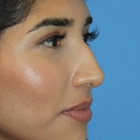
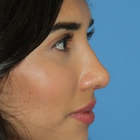
Full-side view
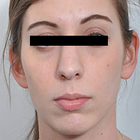
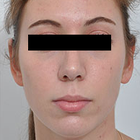
Front view
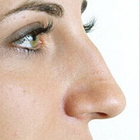
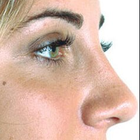
Full-side view
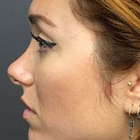
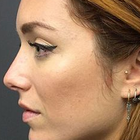
Full-side view
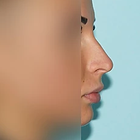
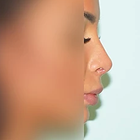
Full-side view
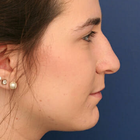
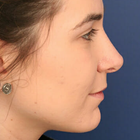
Full-side view
WHY US?
At Medijump, we're making medical easy. You can search, compare, discuss, and book your medical all in one place. We open the door to the best medical providers worldwide, saving you time and energy along the way, and it's all for FREE, no hidden fees, and no price markups guaranteed. So what are you waiting for?

Free

Best Price

Widest Selection

Risk-Free
What you need to know about Nose Surgery in Italy
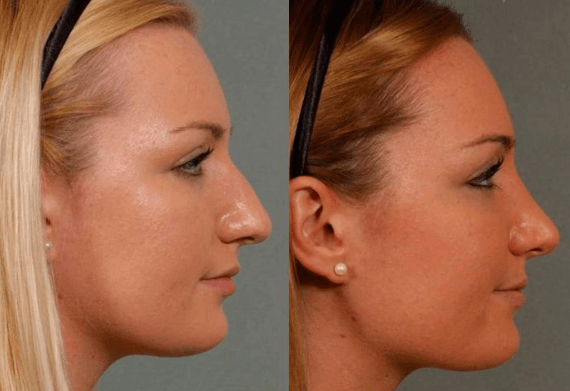
Commonly referred to as a Rhinoplasty, it is the medical term for reshaping of the nose or corrective surgery of the nose. It is one of the most common facial plastic surgeries (Facelift) procedures performed. Nose surgery can be performed to change the consequence of genetics, birth defect or nasal injury. It can be performed to enhance the appearance and/or to improve nasal breathing.
Surgery can be performed to correct nasal humps, the curvature of nose-bridge, nose tip irregularities, and asymmetry in the nostrils. The nasal appearance can be altered in various ways using intra-nasal chisels. Nose surgery procedures generally fall under three types: open rhinoplasty, closed rhinoplasty, and tip rhinoplasty. Rhinoplasty is normally performed under general anesthesia and will not leave any visible scars on the nose.
What does a Nose Surgery Procedure Involve?
Nose surgery is an individualized surgery. Before the surgery, you will need to discuss important factors with your surgeon to determine if it is suitable for you. Your surgeon will review your medical history, including your previous surgeries, medical conditions, and any medications you are taking. You will need to have a complete physical examination, such as blood tests. Your surgeon will also consider your other facial features, the skin on your nose, and what you would like to change or correct. Then, your surgeon will develop a customized plan for you. Two weeks before and after surgery, avoid any medications that contain aspirin or ibuprofen, such as Advil and Motrin IB because these medications can increase bleeding. You will need to also stop taking herbal remedies and over-the-counter supplements. If you are an active smoker, stop smoking because smoking can slow your healing process and increase the risk of getting an infection.
During the actual surgery, you will be given either local anesthesia or general anesthesia. The type of anesthesia depends on how complex the surgery is and what the surgeon would prefer to use. Then, the surgery will start by making incisions inside your nose or at the base of your nose between your nostrils. Your surgeon will reshape the inner bone and cartilage underneath your skin to make a more pleasing appearance.
There are several ways to change the shape of your nasal bones or cartilage, depending on your nose’s structure and how much needs to be removed or added. If only small changes are required, your surgeon may use cartilage taken from deeper inside your nose or your ear. However, for a much larger change, your surgeon may use cartilage from your rib, implants, or bone from other parts of your body. When the changes are finished, your surgeon will place the nose’s skin and tissue back. The incisions will be closed by stitches.
How Long Should I Stay in Italy for a Nose Surgery Procedure?
If everything goes well, you can go back to your hotel on the same day once the effects of anesthesia wear off. However, you will need to stay in a recovery room for a few hours so the staff can monitor you. Some people may need to stay in hospital overnight. After you are discharged from the hospital, you will need to stay in Italy for at least 10 to 14 days for initial recovery, follow-up checkups, and for the stitches to be removed.
What's the Recovery Time for Nose Surgery Procedures in Italy?
The recovery period for nose surgery can be different from person to person. In general, 2 to 3 weeks is needed until you can get back to your full normal routine and 3 to 6 weeks until you can do any strenuous activity. However, you should be able to go back to work within a week, except if your job requires strenuous physical activity. You will feel gradually better each day in the first week. You will experience swelling, which can take six months to subside. The only people who will notice the swelling is you and your surgeon. Your final nose shape will be apparent after it is completely healed.
What sort of Aftercare is Required for Nose Surgery Procedures in Italy?
After the surgery, you may need to wear a nasal splint for the first week. The splint is used to protect and support your nose. Your nose may be congested due to swelling or from the nasal splint. You need to rest in bed with your head raised higher than your chest to reduce bleeding and swelling. For a few days after the surgery, you may also experience slight bleeding and drainage of mucus. Your surgeon may place a “drip pad” under your nose to absorb drainage.
Your surgeon may ask you to avoid strenuous activity, take baths instead of showers, avoid blowing your nose, eat high-fiber foods to avoid constipation, not to do any facial expressions (smiling or laughing), not wearing pull clothing and wear button-downs instead.
For at least several weeks after the surgery, do not rest eyeglasses or sunglasses on your nose to prevent pressure. You should also wear SPF 30 sunscreen when you are outside because too much sun can cause permanent irregular discoloration to your nose. Do not put anything such as ice or cold packs on your nose even though it is swelling as the swelling will go away faster by limiting your dietary sodium.
What's the Success Rate of Nose Surgery Procedures in Italy?
Nose surgery is known to have around 80% to 90% success rate. Nevertheless, just like any other surgery, it still has possible risks and complications. These risks are bleeding, infection, numbness, permanent nerve damage, and an adverse reaction to the anesthesia. You should call your surgeon immediately if you suspect any of the symptoms. Other possible risks are difficulty breathing through your nose, uneven-looking nose, persisting pain, swelling, and discoloration, scarring, septal perforation, and the need for a second or third surgery.
For an in-depth analysis of the closed rhinoplasty procedure with before and after images, watch this short video.
Are there Alternatives to Nose Surgery Procedures in Italy?
If you do not want to undergo surgery, or if it is not suitable for you, you can get filler injections, such as Botox, Juvaderm, and Restylane. They can change the shape of your nose and only require a short visit to the doctor. This method is not painful and needs no incisions or stitches.
Whilst the information presented here has been accurately sourced and verified by a medical professional for its accuracy, it is still advised to consult with your doctor before pursuing a medical treatment at one of the listed medical providers
No Time?
Tell us what you're looking for and we'll reachout to the top clinics all at once
Enquire Now

Popular Procedures in Italy
Prices Start From $404

Prices Start From $111

Prices Start From $70

Prices Start From $220

Prices Start From $1,945

Prices Start From $192

Prices Start From $500

Recommended Medical Centers in Italy for Nose Surgery

- Interpreter services
- Translation service
- Religious facilities
- Medical records transfer
- Medical travel insurance
- Health insurance coordination
- TV in the room
- Safe in the room
- Phone in the room
- Private rooms for patients available

- Interpreter services
- Translation service
- Religious facilities
- Medical records transfer
- Medical travel insurance
- Health insurance coordination
- TV in the room
- Safe in the room
- Phone in the room
- Private rooms for patients available

- Interpreter services
- Translation service
- Religious facilities
- Medical records transfer
- Medical travel insurance
- Health insurance coordination
- TV in the room
- Safe in the room
- Phone in the room
- Private rooms for patients available

- Interpreter services
- Translation service
- Religious facilities
- Medical records transfer
- Medical travel insurance
- Health insurance coordination
- TV in the room
- Safe in the room
- Phone in the room
- Private rooms for patients available

- Interpreter services
- Translation service
- Religious facilities
- Medical records transfer
- Medical travel insurance
- Health insurance coordination
- TV in the room
- Safe in the room
- Phone in the room
- Private rooms for patients available

- Interpreter services
- Translation service
- Religious facilities
- Medical records transfer
- Medical travel insurance
- Health insurance coordination
- TV in the room
- Safe in the room
- Phone in the room
- Private rooms for patients available

- Interpreter services
- Translation service
- Religious facilities
- Medical records transfer
- Medical travel insurance
- Health insurance coordination
- TV in the room
- Safe in the room
- Phone in the room
- Private rooms for patients available

- Interpreter services
- Translation service
- Religious facilities
- Medical records transfer
- Medical travel insurance
- Health insurance coordination
- TV in the room
- Safe in the room
- Phone in the room
- Private rooms for patients available

- Interpreter services
- Translation service
- Religious facilities
- Medical records transfer
- Medical travel insurance
- Health insurance coordination
- TV in the room
- Safe in the room
- Phone in the room
- Private rooms for patients available

- Interpreter services
- Translation service
- Religious facilities
- Medical records transfer
- Medical travel insurance
- Health insurance coordination
- TV in the room
- Safe in the room
- Phone in the room
- Private rooms for patients available
Nose Surgery in and around Italy
Italy, a country in south-central Europe, boasts some of the most varied and picturesque landscapes in the world with the greatest collection of art treasures. The mere mention of Italy conjures up images of ancient Roman ruins, leaning tower of Pisa, stunning isles, rolling vineyards, and authentic cuisines. Besides its charming landscape, delicious food, and historical monuments, Italy is a popular spot for foreign patients to receive medical treatments. Its reputation for cutting-edge, high-quality treatment is growing rapidly. Although it is not the cheapest medical tourism destination, it is known for its highly qualified doctors and surgeons, as well as medical facilities that are equipped with the latest medical technology. Cosmetic surgery, hair transplant treatment, cosmetic dentistry, and cancer treatment are among the most popular treatments in the country.
Popular Parts of Italy
Rome, the capital of Italy, is the birthplace of Julius Caesar and is filled with Roman ruins, such as the Colosseum, Pantheon, and Forum. It is also home to Vatican City, the beautiful Sistine Chapel, the romantic Trevi Fountain, and picturesque restaurants filled with great food. Venice, another popular city in the country, is famous for its canals, gondola rides, and St. Mark's Basilica. On the west coast of Italy, visitors can find the Cinque Terre, which consists of five dramatically located hamlets. It is dotted with steep vineyards, mountains, and beautiful beaches. The fashion capital of Italy is Milan, the ancient towns of Pompeii, Naples, and stunning Florence with its Renaissance art are also popular tourist destinations.
Weather and Climate in Italy
Italy has a variable climate, so different areas can experience different weather. In general, the country has four seasons: spring (March to May), summer (June to August), autumn (September to November), and winter (December to February). Summer has marvelous weather, with sunny days and warm nights. Autumn brings cooler temperatures to the country, while the winter can be chilly or freezing, depending on the area. In spring, the temperatures start to get warmer.
Getting around in Italy
Leonardo da Vinci-Fiumicino Airport is the main gateway airport in Italy. It connects the country with numerous domestic and international destinations, including London, Beijing, Paris, New York, and Moscow. Many international visitors fly to the Milan Malpensa International Airport as well. Transport in Italy is reasonably priced and efficient. An extensive network of domestic flights is available, making it the quickest and most convenient way to travel around. Trains cover many areas across the country and have frequent departures. There are also high-speed trains connecting major cities. Although buses are slower than trains, they are cheaper and covers areas not served by trains. All major cities have good transport systems, with the bus, metro, and tram networks. In Venice, the vaporetti (small passenger ferries) are the main public transport option. Taxis are widely available and are moderately priced.
Tourist Visas in Italy
Since Italy is part of the Schengen area, nationals of EU countries do not need a visa to visit regardless of their purpose and/or length of stay. Citizens of Canada, Australia, the US, Hong Kong, South Korea, the UAE, and several other countries do not need a visa to stay in the country for up to 90 days within a six-month period. Other nationals not listed in the visa exemption countries will need to apply for a visa before visiting.
Additional Information
- Local Currency: The euro (€) is the official currency of Italy. The exchange rate from €1 is approximately US$1.17.
- Money & Payments: ATMs can be found easily throughout Italy, but make sure to be vigilant when making cash withdrawals in tourist areas since pickpocketing is common. Major credit cards are widely accepted. Tipping is not expected. However, you can always tip an extra 10% to 15% for exceptional service.
- Local Language: Italian is the official and most commonly spoken language in Italy. English is not widely spoken, except in larger cities such as Rome, Milan, and Florence.
- Local Culture and Religion: Roman Catholicism makes up around 80% of the population. The other 20% is made up of Muslims, agnostics, and atheists.
- Public holidays: Italy mostly celebrates Christian holidays. Some of the most important are Epiphany, Pasquetta, Saints Day, Liberation Day, and Christmas.
Popular Searches
- Plastic Surgery in Thailand
- Dental Implants in Thailand
- Hair Transplant in Thailand
- Breast Augmentation Thailand
- Gastric Sleeve in Thailand
- Gender Reassignment Surgery in Thailand
- Laser Hair Removal in Bangkok
- Botox in Bangkok
- Dermatology in Bangkok
- Breast Augmentation in Bangkok
- Coolsculpting in Bangkok
- Veneers in Turkey
- Hair Transplant in Turkey
- Rhinoplasty in Turkey
- Stem Cell Therapy in Mexico
- Rhinoplasty in Mexico
- Liposuction in Mexico
- Coolsculpting in Tijuana
- Rhinoplasty in Korea
- Scar Removal in Korea
- Gastric Sleeve in Turkey
- Bone Marrow Transplant in India
- Invisalign in Malaysia
- Plastic Surgery in the Dominican Republic
- Tummy Tuck in the Dominican Republic
- Plastic and Cosmetic Surgery in Poland
- Rhinoplasty in Poland
- Hair Implant in Poland
- Dental Implants in Poland
- IVF in Turkey







